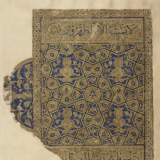History of surah Hud

Name
This Surah bears the name of Prophet Hud, whose life story is told in verses 50 to 60.
Period of Revelation
Deep thought about its theme leads us to the conclusion that it was revealed about the same period as Surah Yunus and most likely right after it.
Subject
The Surah addresses the same subject as Surah Yunus, namely, invitation to the Message, admonition, and warning, with the difference that the warning is more severe. A Tradition also supports this:
After its revelation, Hadrat Abu Bakr reportedly observed to the Holy Prophet, "I've just noticed that you're getting older and older. What is the reason for it?" "Surah Hud and similar Surahs have rendered me old," the Holy Prophet retorted. This demonstrates that the Holy Prophet was going through a very trying time, and these strong warnings only compounded his worries about the Quraish's persecution of him as they did all in their power to stifle the spread of Islam. The Holy Prophet was terrified that the duration of the respite would expire and his people would be engulfed in misery since it was evident to him that the final limit of the respite granted by Allah was drawing closer and closer.
This is the invitation: Obey the Messenger of Allah, abstain from shirk, and worship Allah alone; base your entire way of living on the conviction that you will be held accountable in the Hereafter.
The warning is to keep in mind that those who trusted in the outward appearance of this worldly life and disregarded the Prophets' message suffered terrible consequences. Therefore, you should carefully assess if you should take the same road that history has shown to lead to disaster.
The warning is that you shouldn't let the delay in the punishment fool you; it's due to the grace that Allah has shown you by giving you some time to change your ways. If you miss this chance, you will face an unavoidable punishment that will wipe you all out except for the Believers.
The Quran uses the tales of Noah, Hud, Salih, Lot, Shu'aib, and Moses to accomplish the aforementioned goals rather than speaking directly to the populace. What stands out most in their accounts is that Allah does not spare anyone at all when He judges the people, not even the closest relative of the Prophet at the moment. No one else, not even his own son or wife, is saved; only the one who had believed in the Prophet. More than that, the Faith requires each and every Believer that, when that judgment comes, he should completely forget his attachments and remember only the relationship of the Faith. Because any respect for racial and blood links is contrary to the spirit of Islam. In the Battle of Badr, which took place four years after the revelation of this Surah, the Muslims put these lessons into practice.